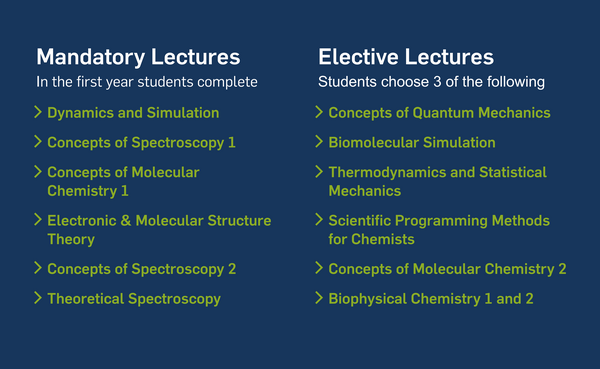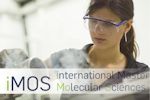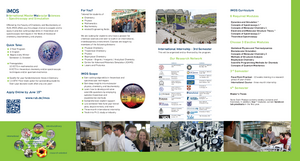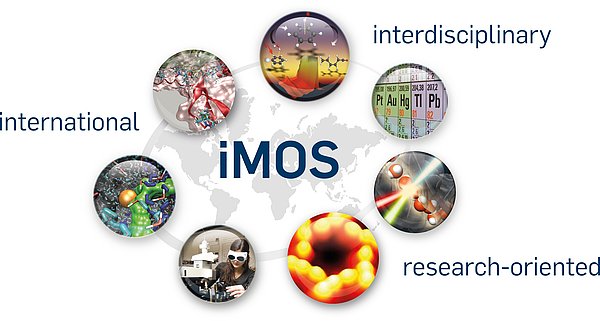
MOLECULAR SCIENCES - Spectroscopy and Simulation
Welcome to our international master`s program with a focus on spectroscopy and simulation
The Master's program is a research-oriented, interdisciplinary and multicultural program held in English. The program focuses on the molecular understanding of chemical and biochemical processes through curriculum highlighting modern laser spectroscopy and microscopy, computer simulation, and quantum chemistry within the traditional disciplines of chemistry and physics.
Around 50% of the coursework is laboratory practicals. One-third of the first year of studies is dedicated labs associated with the mandatory lectures below, plus full time laboratory projects in the final year.
Please visit our degree program page on the Faculty of Chemistry and Biochemistry website for rules and regulations.
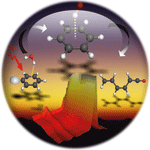
Now Accepting Applications
1. December 2025 - 15. June 2026
for an October 2026 start.
Regulations: iMOS Faculty website
To combine iMOS with a PhD, apply by 15. May and please see RESOLV's iGSS Fast-Track / Track II PhD
FACTSHEET
Duration: 2 years
Degree: Master of Science from the Faculty of Chemistry and Biochemistry, RUB
Location: Bochum, Germany
Language of Instruction: English
Tuition Fee: None
Social Fee: ca. 360,- Euros per semester (every 6 months)
Course Start: 1. October, Winter Semester only
Email: imos[@]rub.de
Develop your scientific reasoning skills
The goal of this program is to provide you "hands on" experience in both cutting-edge science and modern techniques at an early stage of your career. You will learn how to develop and solve scientific questions by employing suitable theoretical and experimental methods and how to work effectively in international, multicultural and interdisciplinary teams.
Questions such as ...
... how can laser spectroscopy and microscopy methods help us to fundamentally understand chemical reactions and biological processes?
... which roles does water, as the "matrix of life", play in protein folding or enzymatic reactions?
... can we improve chemical reactions by choosing the right solvent?
... which molecular interactions determine the macroscopic properties of liquids?
... how quickly do chemical reactions take place at the molecular level?
develop into solving technical problems...
... how can we design molecular sensors that are visible within the bio-transparency window?
... can we design new spectroscopic techniques that allow us to better "see" molecular interactions, e.g. at faster timescales, at different wavelengths, under different solvent or sample conditions?
... how can we best model complex biological molecules and their environment with computational methods?
... how can charge transport systems be designed, e.g. in energy storage devices, for efficient photocatalysis, or even at biomembranes?
... how can we develop compact and high-energy laser sources and optical setups for use in a wide range of advanced spectroscopic methods?
... how can we use advanced microscopy to image biological functions and what role does water play?
Job perspectives
Graduates with this degree* have found work in academic and industrial positions in NRW and abroad, conducting research and development in
- physical and theoretical chemistry, physics, and bioinformatics
- optical and laser technology, including photonics and fiberoptics
- performance materials and advanced materials design
- (bio)molecular modeling and biophysics simulations
- information technology
- data analysis and consultancy
- neuroscience discovery, microscopy for medical technology
- crop science
- micro and nanosystems
Many of our students continued into a doctoral program after graduation in the fields listed above.
*Past performances are not guarantees of placement, rather provided as tips for our alumni network.
Statements from Industry
Eduard Schreiner (BASF - The Chemical Company):
"Proper preparation, interdisciplinary curriculum for a profound understanding of the theoretical and practical aspects of modern molecular modeling, working within a network of top universities in the world and commitment are the ingredients for success in academia and industry. IMOS offers all of these ingredients by integrating the knowledge, the experience and social networks of generations of researchers."
Nikolaj Otte (Henkel):
"Molecular Simulation allows me to contribute to applied research by providing a different angle of view than the traditional chemical disciplines. At the same time it provides me with the flexibility to study a large variety of chemically distinct and complex problems, from the reactions of small molecules to enzymatic catalysis and from polymerization kinetics to the properties of materials."
Statements from Science
Alexander Witt (postdoc at Stanford University):
"Despite sharing many fundamental principles, traditionally Chemistry and Physics classes are normally taught separately. The iMOS program is unique in the way that it brings together students from different fields to learn, and fosters connections between different research areas. This quite unique program prepares students for cutting edge research which is increasing interdisciplinary and sits at the interface between traditional fields."
Benjamin Born (postdoc at Weizmann Institute of Science):
"It is exciting to see a new generation of solvation scientists emerging. The well-established combination of a task-specific lecture series and hands-on research experience in Bochum and in selected labs abroad will be beneficial to the personal and scientific development of students of the iMOS program."
